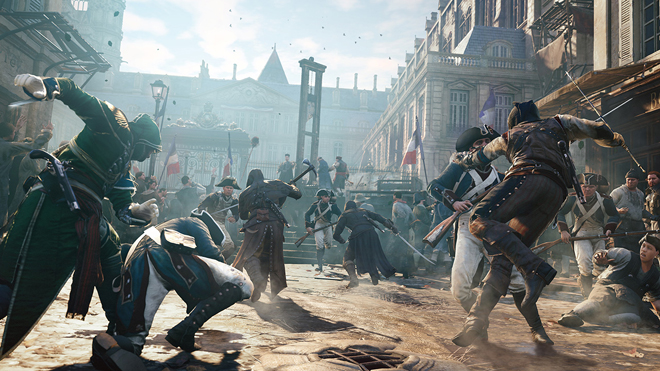Examples of Damage Control in Gaming: Yes, of Course Ghost Recon Breakpoint Is Political

Ubisoft did a mostly good job marketing Tom Clancy’s The Division 2 in the lead-up to its mid-March release, given its popularity. But there was one particularly eyerolling snafu during the promotional cycle.
Shortly after the reveal at E3 2018, key development team members did the best job they could to try and convince the audience that the game wasn’t political, despite that very, very obviously being the case. It’s not possible to say a game bearing the name of late novelist and known conservative Tom Clancy isn’t political. The game occurs in a Washington DC that’s fallen to a virus, with artwork showing a fallen White House and a trailer describing the destruction of Capitol Hill, while a civil war between survivors and marauders is underway. There’s no avoiding the politics here.
Not to mention that part of the marketing campaign involved referring to the game’s story as a “Government Shutdown,” which they apologized for since we were suffering from the United States’ very real and historically long Government Shutdown at the time.

Ubisoft had a hell of a time rolling with this, so it’s no surprise that they’re repeating it with Tom Clancy’s Ghost Recon Breakpoint, which the company announced this past week. It took only minutes after the reveal stream ended for lead developer Sebastien Le Prestre to tell GameSpot that the company is “creating a game here,” and that it’s a “’What if?’ scenario, it’s Tom Clancy, it’s purely fictional.” Calling this claim “wild” is an understatement.
Saying that Breakpoint is just a game means nothing, as it’s very simple to define whether a game is political or not. Not to mention that saying something is apolitical is political in itself. Again, the fact that this is a Tom Clancy game is enough to put this within the “political” sphere given who he was, and that’s not getting into this game’s synopsis and the history around the previous Ghost Recon title.
Breakpoint’s plot starts when a group of rogue US soldiers known as the “Wolves” hijack Silicon Valley tech giant Skell Technology and steal their advanced AI drones. They use them to take over an island and assassinate an election candidate, and are now hunting the “Ghosts” US soldier faction. You almost have to admire the mental gymnastics involved with denying whether this game is political, but they are.
The island involved is a fictional South Pacific location known as Aurora. They were bound to go with a location of their own creation this time around, as the political themes in the last game, Tom Clancy’s Ghost Recon Wildlands, caused an actual diplomatic incident.
Wildlands took place in a version of Bolivia rife with violence and drugs, a depiction the Bolivian government was not happy with. This led to them filing a complaint with the French embassy, and a threat to take legal action. To defend themselves, Ubisoft released a statement that hammered several of the same points provided about this game from Le Prestre above, explaining that Wildlands’ Bolivia contained its own fictional themes while making use of its lush environments. This statement and mild flattery seemed to work, but it’s no surprise that they don’t want this kind of trouble with any other country again.

This game is clearly political, but the developers are clearly referring to another phenomenon when defining politics here. Too many bad gamers interpret “politics” to mean shoving certain themes down a player’s throat, typically regarding either shying away from fanservice, including diversity, or, hell, any themes that could be interpreted as left-leaning. This is not what politics actually means, and it’s cowardly of Ubisoft to not take a stance here. But they know who they’re catering to.
Yet, any discussion or feature about whether this game is political or not will work out to their advantage. These kinds of debates give the game further exposure and attract attention on social media, gaming sites, and message boards for those who aren’t aware of the game’s existence or will soon need a reminder about its release. This isn’t to say most potential Breakpoint players will find out about it this way or even participate in these discussions, as the audience will mostly be comprised of players who don’t dwell on any of the three types of websites, similar to those who played Wildlands and The Division 2. But they could always use more players, and this could do the trick. I know I’m also not helping by writing this post, but this kind of schadenfreude couldn’t be ignored.
If the Division 2 was a good indication, discussions of politics didn’t dominate the discourse too heavily. This trend should continue with Breakpoint, but expect the topic to occasionally manifest between now and the October 4th release date — especially if Ubisoft brings it up themselves.





